COVID-19 spreads primarily from person to person. Fighting this disease is our joint responsibility. Protect yourself and others by making these 6 simple precautions your new habits:
Clean your hands often
Cough or sneeze in your bent elbow – not your hands!
Avoid touching your eyes, nose and mouth
Limit social gatherings and time spent in crowded places
Avoid close contact with someone who is sick
Clean and disinfect frequently touched objects and surfaces
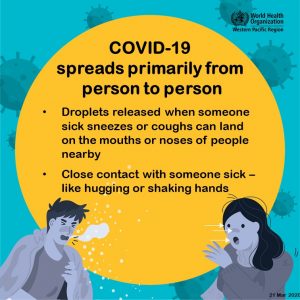
Know the facts: COVID-19 spreads primarily from person to person. This can be via droplets released when people sick with the new coronavirus cough or sneeze. It can also spread when you’re in close contact with someone who’s sick – e.g. when you hug or shake hands.
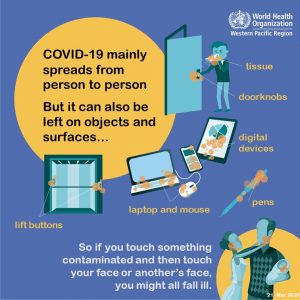
COVID-19 spreads primarily through close contact with someone who is infected, but it can also spread if you touch contaminated objects and surfaces. You can protect yourself: clean your hands and your surroundings frequently!
COVID-19 is often more severe in people who are older than 60 years or who have health conditions like lung or heart disease, diabetes or conditions that affect their immune system.
If you’re at high risk, know what to do, and take the right actions now to protect yourself.
If you’re not at high risk, do your part to prevent the spread of coronavirus to those who are.
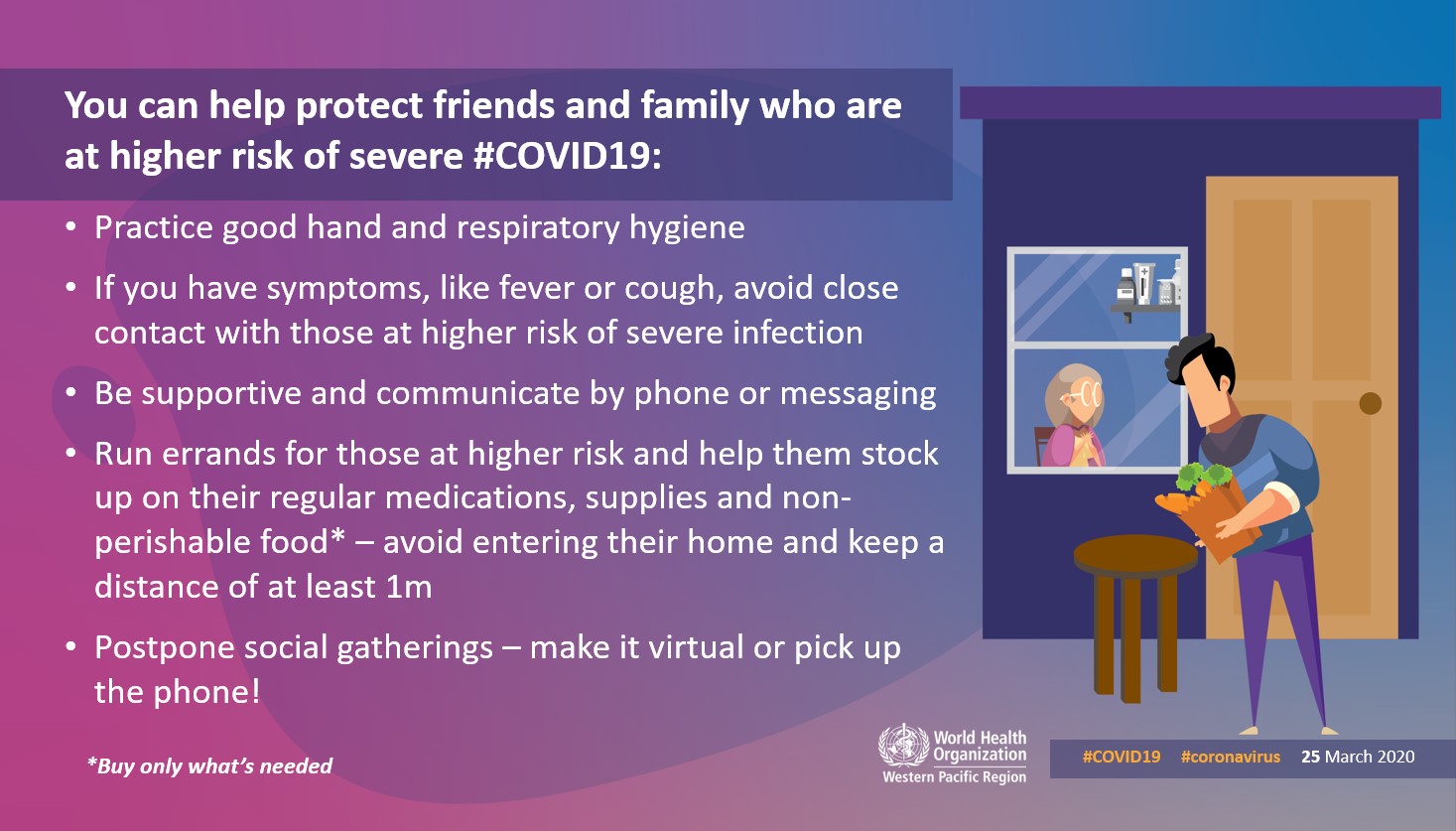
COVID-19 is often more severe in people 60+yrs or with health conditions like lung or heart disease, diabetes or conditions that affect their immune system. Do your part to protect those who are at most risk.

Are you at higher risk of severe COVID-19? If you’re over 60 years or you have an underlying health condition, take these actions now to minimize your risk of infection.
Know the facts: Most people infected with COVID-19 will only have mild symptoms and fully recover. Yet, some people are more at risk.
We all have a role to play in protecting ourselves and others.
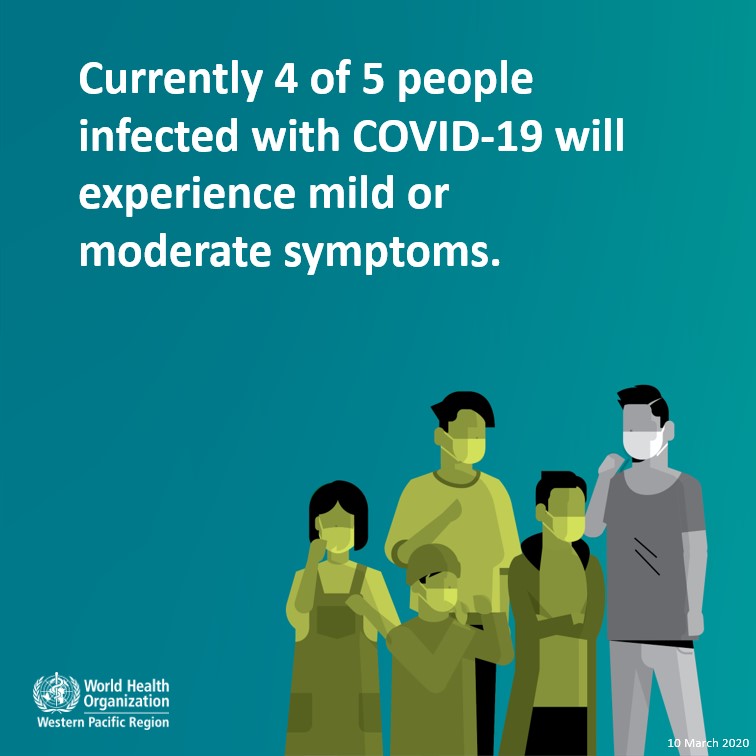
Download COVID-19 infographic Know the facts: While COVID-19 is spreading rapidly, most people will experience only mild or moderate symptoms. That said, this coronavirus can cause severe disease in some people.
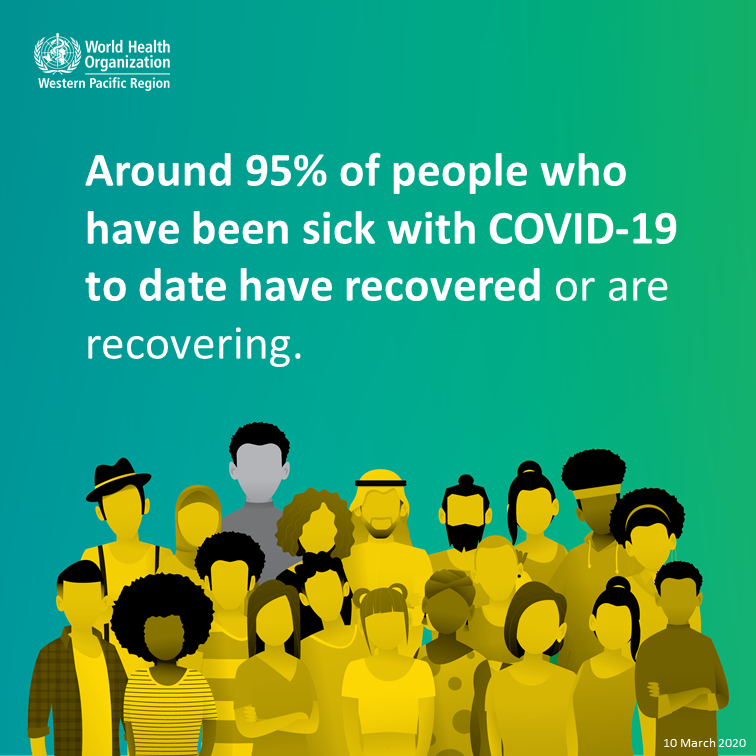
The vast majority of people who have contracted the new coronavirus to date have recovered or are recovering. However, even a disease that 95% of people are recovering from can cause a significant number of deaths if it infects enough people.
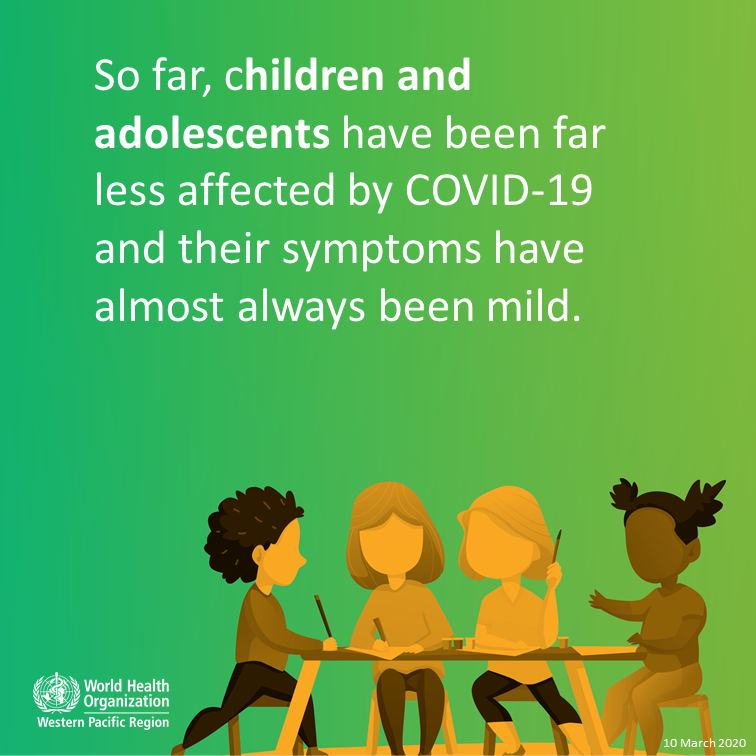
There have been relatively few COVID-19 infections among children. Older age groups, especially those with underlying health conditions, are more at risk.
Source: World Health Organization